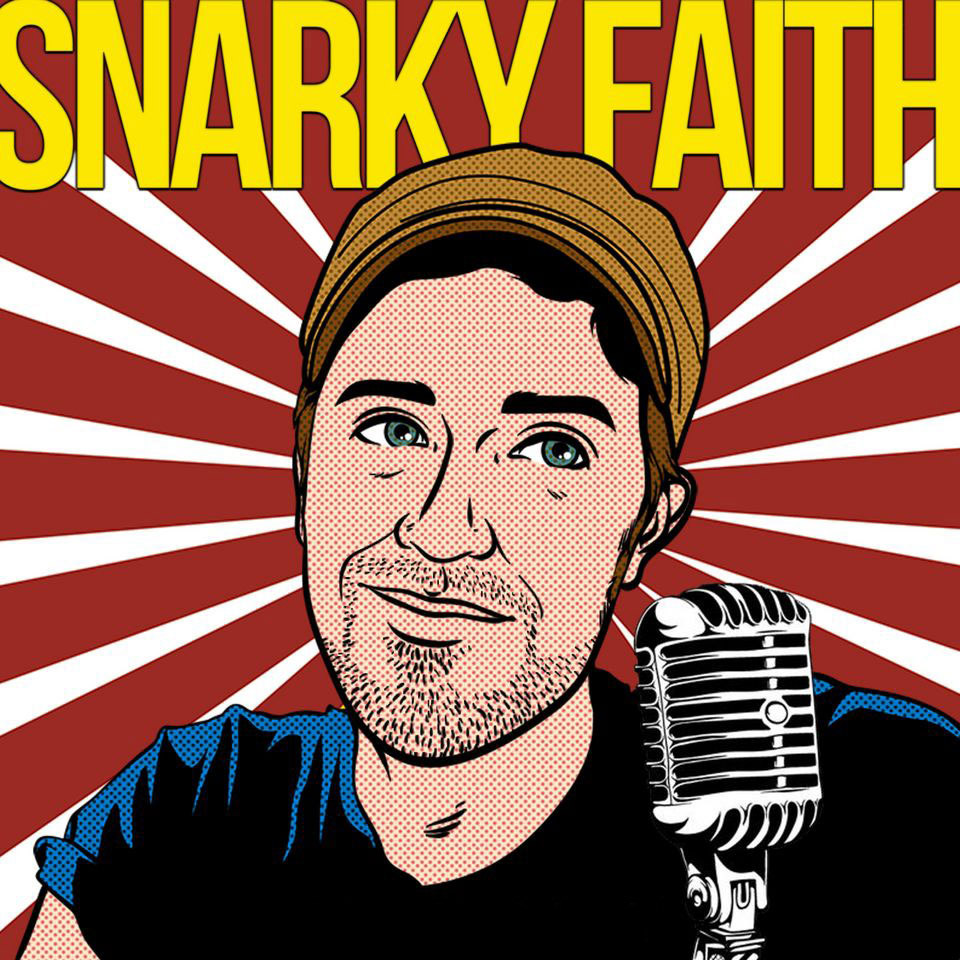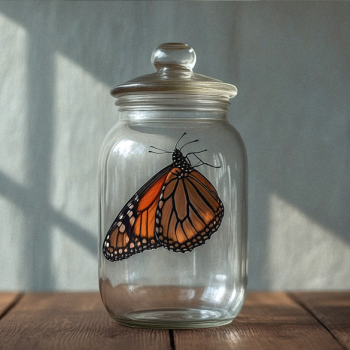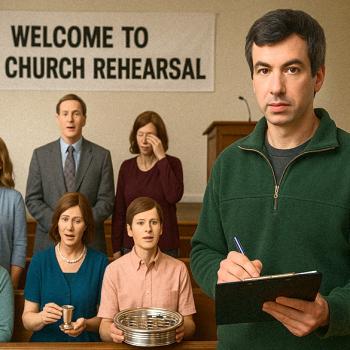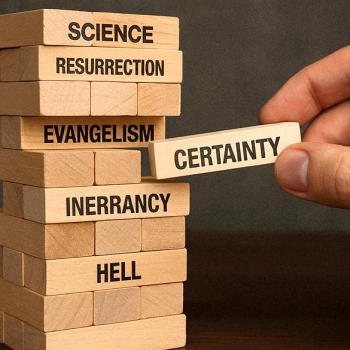
There’s a reason Kierkegaard thought of himself as a missionary to Christians. He saw them, much like we do today, sitting comfortably in pews, nodding along to feel-good sermons, and mistaking their rote recitations of doctrine for actual faith. If faith was supposed to be a struggle, an existential crisis, a leap into the absurd—then what most Christians practice today is anything but.
Faith, real faith, is supposed to make you sweat. It should haunt your nights and challenge your days. But modern American Christianity? It’s a warm, cozy blanket of certainty, where believers are spoon-fed pre-packaged answers to life’s hardest questions, ensuring they never have to think too much or (God forbid) doubt.
Abraham: The Guy You Don’t Want to Be
Churches love to tell the story of Abraham and Isaac. “Look at Abraham’s great faith!” they proclaim. But if any Christian dad today pulled an Abraham and started sharpening a knife over his kid, he’d be locked up faster than you can say binding of Isaac. And rightly so. Because let’s be real—this isn’t just faith, it’s also deeply unsettling.
That’s the part most sermons skip: this story isn’t a feel-good lesson about trust. It’s terrifying. It forces us to wrestle with the difference between faith and madness, obedience and blind fanaticism. Kierkegaard called it a leap into the absurd for a reason—because if faith is truly faith, it can’t always make sense. It can’t always be safe. And yet, Abraham still believed. Not just in God’s existence but in the utterly irrational idea that somehow, some way, this would work out. That’s what real faith is—standing on the cliff’s edge, staring into the abyss, and leaping anyway.
Christianity Has a Faith Problem
Now compare that to the average modern Christian experience. No leaps into the abyss, no crises of belief—just Sunday sermons about how Jesus loves you, followed by lunch at Applebee’s. American Christianity has become a religion of comfort, where faith means believing in God just enough to secure a sense of security, but not so much that it actually disrupts life.
Faith is supposed to be hard. It’s supposed to demand everything from you. Kierkegaard argued that most people claiming to be Christians were just coasting on routine, mistaking tradition for transformation. Today, that looks like:
- Equating church attendance with devotion.
- Reducing faith to a set of political talking points.
- Using “God’s plan” as a way to justify inaction and avoid hard decisions.
- Confusing obedience to authority with obedience to Christ.
When I told my father I felt called into ministry, his response wasn’t excitement or even caution—it was, “You’ll never make any money.” This was a man who had me in church every Sunday morning, evening, and Wednesday night. But when faith stopped being a routine and started looking like real risk, suddenly it was impractical. That moment made it clear: faith was fine as long as it didn’t cost anything.
A Trek into the Desert
A lot of Christians think a “leap of faith” means some big, public gesture—selling all your belongings, moving to another country, or loudly standing up for Jesus in a Starbucks. But that’s just a performance, a self-congratulatory stunt that keeps believers feeling radical without actually confronting anything difficult.
A real leap of faith isn’t about theatrics. It’s about stepping into the unknown, leaving behind certainty, and embracing the discomfort of real transformation. It’s not a moment—it’s a journey, a trek into the desert, away from the safety of religious groupthink and into something raw and uncharted.
I used to think a leap of faith meant big, dramatic moves—I changed careers, worked full-time, unpaid for a church for two years, moved across the country, even became a missionary. And maybe those swings were necessary. They set me up for the real, terrifying leaps—deconstruction, therapy, being defrocked (for supporting my LGBTQ brothers and sisters), and walking my own path. The first leaps were about doing; the later ones were about being.
Faith isn’t about grandstanding. It’s about the quiet, grueling, daily choices to live with integrity when it costs you. It’s leaving a toxic religious family to find a healthier community. It’s questioning bad theology even when it isolates you. It’s standing up for marginalized people when your “Christian” friends tell you you’re being divisive.
And here’s the part most Christians miss: faith isn’t about waiting for heaven to fix everything. Kierkegaard wasn’t peddling some celestial reward system. He didn’t see faith as a way to endure life just so you could cash in your eternal winnings later. No, faith is for now—a radical, often painful, reorientation of your life toward something deeper than comfort. If your faith doesn’t demand anything of you right now, it’s probably not faith. It’s just a crutch to avoid dealing with reality.
The Leap You’ll Never Take
Let’s be honest—most people don’t want faith. They want certainty. They want the illusion of faith without the existential crisis that comes with it. But faith isn’t about comfort. It’s not about safety. It’s about standing in the darkness, not knowing what’s ahead, and still trusting in something greater.
And let’s not pretend that’s easy. The story of Abraham and Isaac isn’t just a lesson in trust—it’s deeply unsettling. It forces us to ask: When does faith become madness? When does obedience become fanaticism? And if faith is supposed to make sense, was Abraham wrong for believing in something so absurd? That’s the real struggle—faith isn’t supposed to be neat, logical, or convenient. It’s supposed to tear at you. To demand something unreasonable.
I know this because I lived it. I once had certainty. I had the answers, the plan, the mission. But certainty isn’t faith. Real faith is what came later, when I lost everything I thought made me a Christian and had to keep going anyway.
And if that sounds exhausting, good. Maybe it’s time to stop pretending that what passes for faith today is anything more than comfort wrapped in religious language. Kierkegaard was right—most Christians aren’t people of faith. They’re people of habit. And that’s not a leap; that’s just standing still.
For more Snarky Faith, check out the podcast and more:
- Snarky Faith website
- Snarky Faith on Instagram: @stuartdelony
- Snarky Faith on YouTube: @snarkyfaith
- Snarky Faith on Bluesky: @snarkyfaith.bsky.social
- Snarky Faith Group on Facebook: www.facebook.com/snarkyfaith
- Snarky Faith t-shirts and mugs available here.














